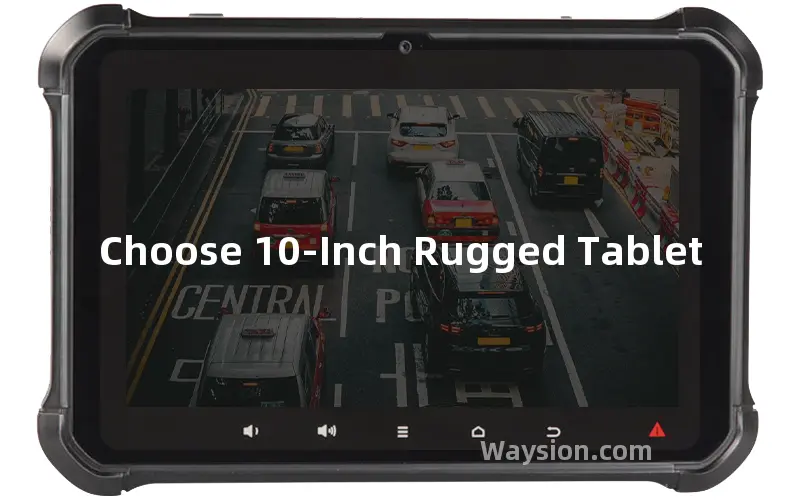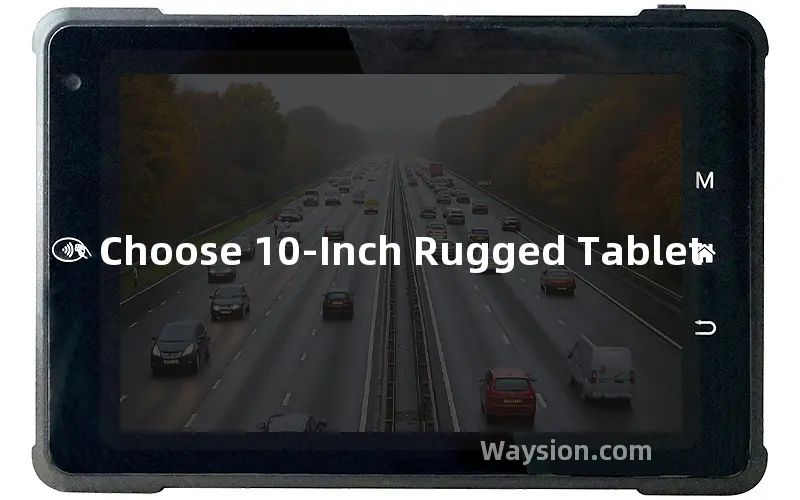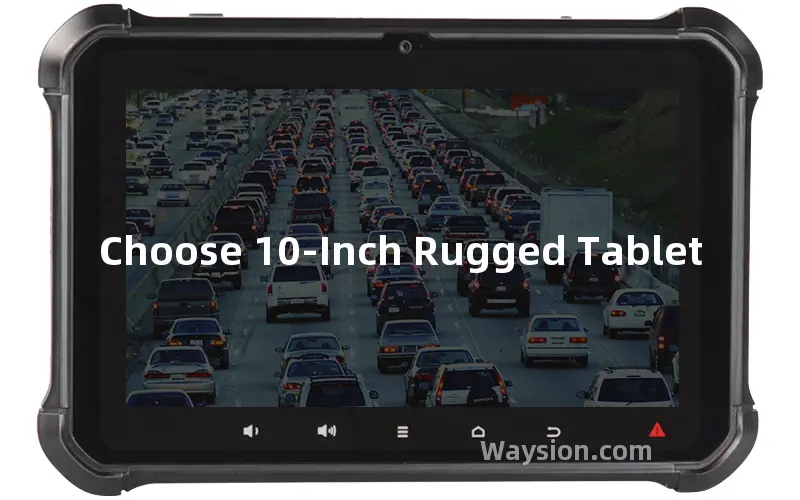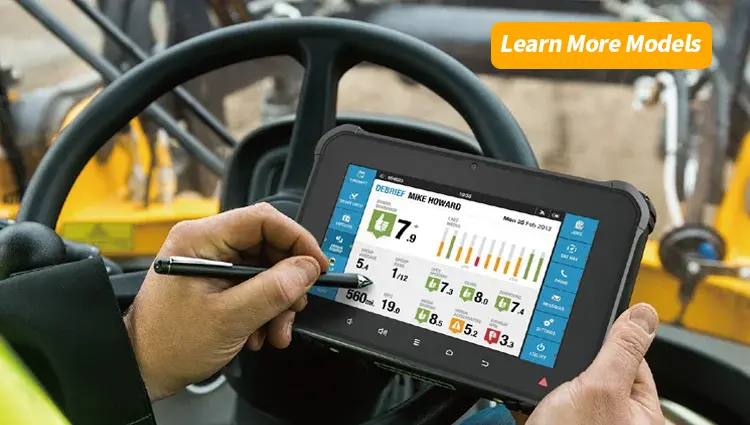How to Choose a 10-Inch Rugged Tablet Supplier and Manufacturer?
Choosing the right supplier for a 10-inch rugged tablet can be a daunting task, especially with so many options available in the market. With increasing demand for durable, reliable technology in industries like logistics, construction, and public safety, the importance of selecting the right manufacturer cannot be overstated. In this article, we’ll explore the essential steps and considerations to ensure you make an informed choice.

1. Introduction
The rugged tablet market is booming, but not all suppliers are created equal. Selecting a reliable supplier is crucial, as it can impact the efficiency and effectiveness of your operations. So, what should you look for? Let’s dive in!
2. Understanding Rugged Tablets
Definition and Key Features
Rugged tablets are designed to withstand harsh environments. They typically feature:
- Durable casings: Built to resist drops, water, and dust.
- High brightness screens: Readable in direct sunlight.
- Extended battery life: Essential for fieldwork.
- Enhanced connectivity: Supports various communication modules.
Applications in Various Industries
These devices are commonly used in:
- Construction: For project management and safety inspections.
- Logistics: To track shipments and manage inventory.
- Public safety: For real-time data access by first responders.
3. Identifying Your Needs
Assessing Your Requirements
Before you start looking for suppliers, take a moment to assess your specific needs:
- What applications will the tablet be used for?
- What environmental conditions will it face?
- Do you require specific software compatibility?
Industry-Specific Considerations
Different industries have unique requirements. For example, a tablet for construction might need advanced GPS features, while one for healthcare might require specialized software.
4. Researching Potential Suppliers
Online Reviews and Reputation
Start by researching potential suppliers online. Check customer reviews and testimonials to gauge their reputation. Platforms like Trustpilot or industry-specific forums can provide insights into customer satisfaction.
Industry Certifications and Standards
Verify if the supplier adheres to industry standards such as MIL-STD-810 for ruggedness or IP ratings for water and dust resistance. These certifications can provide additional assurance of product quality.

5. Evaluating Product Quality
Testing and Durability Standards
A key aspect of choosing a supplier is ensuring their products undergo rigorous testing. Ask about their testing procedures and quality assurance protocols.
Warranty and Support Services
Evaluate the warranty terms. A longer warranty period often indicates confidence in the product’s durability. Additionally, check the availability of support services in case issues arise.
6. Comparing Costs and Value
Price vs. Quality Considerations
While price is important, don’t let it be the sole deciding factor. Cheaper products may lack durability or features, ultimately costing you more in the long run.
Total Cost of Ownership
Consider the total cost of ownership, which includes maintenance, support, and potential downtime. A higher initial investment in a reliable tablet can lead to savings over time.

7. Supplier Experience and Expertise
Years in Business
Look for suppliers with a proven track record. A company that has been in the industry for years is likely to have more experience in understanding market demands and technological advancements.
Specialization in Rugged Devices
Choose suppliers that specialize in rugged tablets. Their expertise will likely result in better product quality and more relevant features for your needs.
8. Customer Service and Support
Responsiveness and Availability
Evaluate the supplier’s customer service. Are they easy to reach? Do they respond promptly? Good communication is crucial, especially if you encounter issues.
Post-Purchase Support
Check what kind of post-purchase support they offer. This includes troubleshooting assistance, software updates, and repair services.
9. Customization Options
Flexibility in Specifications
If your operations have unique needs, check if the supplier offers customization options. Tailored solutions can enhance productivity and efficiency.
Tailored Solutions for Specific Needs
Some suppliers may offer pre-configured tablets for specific industries. These can save time and ensure that you get a product that meets your needs from the get-go.
10. Production Capacity
Ability to Meet Demand
Ensure that the supplier can handle your order volume, whether you’re looking for a small batch or bulk purchases.
Scalability for Future Needs
As your business grows, your technology needs may change. Choose a supplier that can scale up production as needed.
11. Logistics and Delivery
Shipping Times and Costs
Discuss logistics early on. Understand the estimated delivery times and associated costs to avoid surprises.
Inventory Management
Some suppliers offer inventory management services to help keep track of stock levels, which can be a huge benefit for businesses with fluctuating demands.
12. Legal and Compliance Considerations
Understanding Contracts and Agreements
Before finalizing any deal, ensure you understand the terms and conditions of the contract. Pay close attention to cancellation policies and any hidden fees.
Compliance with Regulations
Ensure that the supplier complies with local and international regulations, especially if you’re in a regulated industry.
13. Case Studies and Testimonials
Learning from Others’ Experiences
Ask potential suppliers for case studies or references. Understanding how their products have performed in real-world scenarios can provide valuable insights.
Real-World Applications
Look for examples of how their tablets have benefited businesses similar to yours.
14. Making the Final Decision
Weighing Pros and Cons
Once you’ve gathered all the information, list the pros and cons of each supplier. This can help clarify your decision-making process.
Importance of a Trial Period
If possible, request a trial period. Testing the tablets in your work environment can provide firsthand experience of their performance and suitability.
15. Conclusion
Choosing the right supplier for a 10-inch rugged tablet is critical for your operations. By understanding your needs, researching suppliers, evaluating quality, and considering all factors, you can make an informed decision that enhances your productivity and reliability.
16. FAQs
What are the key features of a rugged tablet?
Rugged tablets typically have durable casings, high brightness screens, long battery life, and enhanced connectivity options.
How can I assess a supplier’s reliability?
Research online reviews, check industry certifications, and ask for references or case studies to gauge a supplier’s reliability.
What is the average price range for rugged tablets?
Prices can vary significantly based on features and specifications, but you can expect to pay anywhere from $300 to over $1,500.
Are there customization options for rugged tablets?
Many suppliers offer customization options to meet specific industry needs, including software and hardware configurations.
How do I handle warranty issues with my supplier?
Ensure you understand the warranty terms before purchase. Contact customer support for assistance with any warranty claims.








